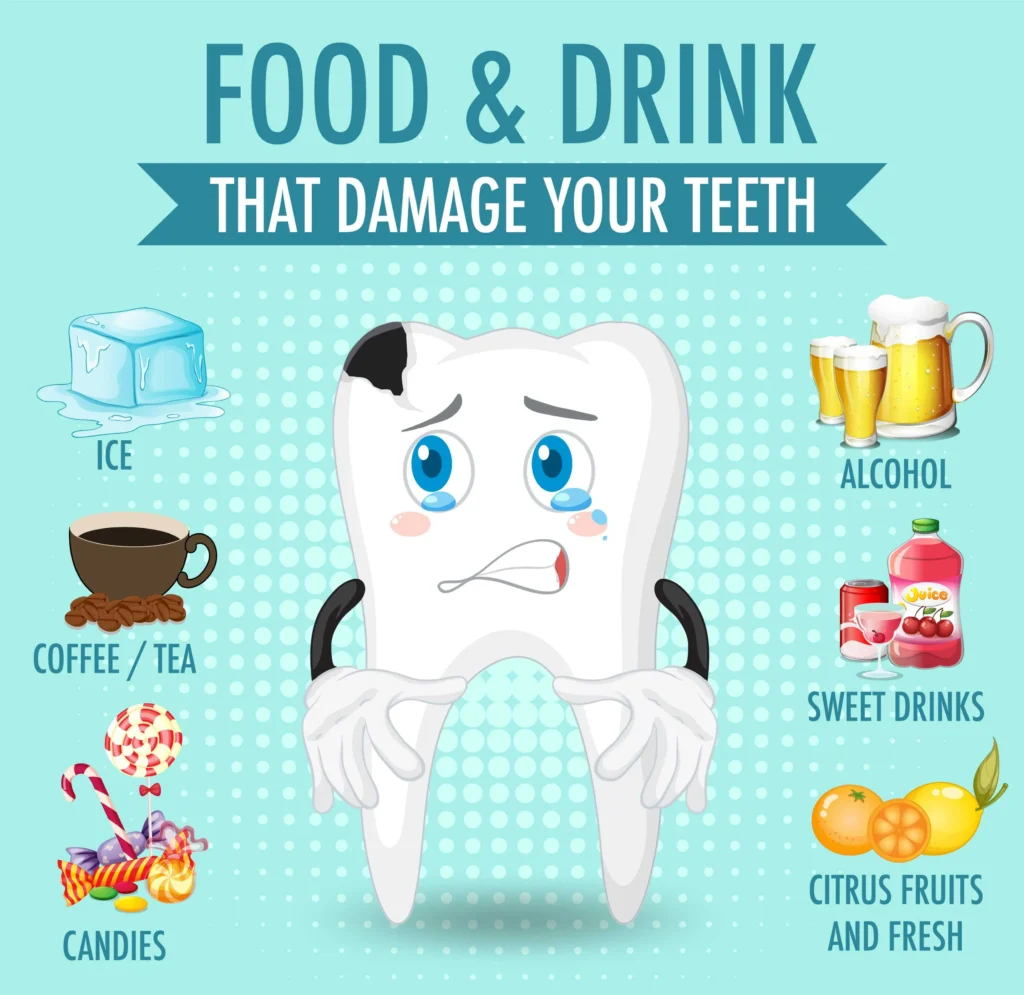Table of Contents
ToggleUnlocking Toothache: Causes, Prevention, and Remedies for Dental Discomfort

Discover the causes of toothache, proactive measures for prevention, and effective remedies for relief. Learn how to maintain dental health and manage toothache discomfort.
In the realm of oral discomfort, few sensations rival the persistent throb of a toothache. Whether it strikes suddenly or builds gradually, a toothache can disrupt daily life and demand immediate attention. Understanding the causes, implementing preventive measures, and exploring effective remedies can offer relief and promote dental wellness. Let’s delve into the world of toothaches to uncover their mysteries and solutions.
Healthy Teeth
Healthy tooth habits are the cornerstone of a radiant smile and lifelong dental wellness. From diligent oral hygiene routines to mindful dietary choices, cultivating habits that prioritize the health of your teeth is paramount. By embracing proactive dental care practices and making informed choices, you can safeguard your oral health, prevent common dental issues, and pave the way for a confident and vibrant smile that lasts a lifetime.
Causes of Toothache: Unveiling the Culprits
- Dental Decay: The most common cause of toothaches, dental decay occurs when bacteria in the mouth produce acids that erode tooth enamel, leading to cavities. As decay progresses, it can reach the sensitive inner layers of the tooth, causing pain.
- Gum Disease: Periodontal issues, such as gingivitis and periodontitis, can result in gum recession and expose tooth roots. This exposure can lead to tooth sensitivity and discomfort.
- Dental Trauma: Accidents, injuries, or tooth grinding can damage teeth, causing cracks, fractures, or dislodgement. Such trauma can result in acute or chronic toothache, depending on the severity of the damage.
- Tooth Abscess: A dental abscess is a bacterial infection that forms within the tooth or in the surrounding gum tissue. It often causes intense, throbbing pain and requires prompt treatment to prevent further complications.
- Impacted Wisdom Teeth: When wisdom teeth don’t have enough room to emerge properly, they can become impacted, leading to pain, swelling, and infection in the surrounding gum tissue.
Preventing Toothache: A Proactive Approach to Dental Health
- Maintain Oral Hygiene: Brushing twice daily with fluoride toothpaste, flossing regularly, and using antimicrobial mouthwash can help prevent dental decay and gum disease.
- Healthy Diet: Limit sugary and acidic foods and beverages, as they can contribute to tooth decay. Instead, opt for a balanced diet rich in calcium, vitamin D, and other nutrients essential for dental health.
- Regular Dental Check-ups: Schedule biannual dental visits for professional cleanings and comprehensive examinations. Early detection of dental issues allows for prompt intervention and prevents the development of toothaches.
- Protective Measures: Wear a mouthguard during sports activities to prevent dental trauma, and address teeth grinding (bruxism) with a custom-fitted night guard to protect teeth while sleeping.
- Address Dental Concerns Promptly: Don’t ignore dental pain or discomfort. Seek professional dental care at the first sign of a toothache or any oral health issue to prevent complications.
Remedies for Toothache: Soothing Solutions for Relief
Saltwater Rinse: Mix warm water with salt and rinse your mouth to reduce inflammation and alleviate pain.
Over-the-Counter Pain Relief: Ibuprofen or acetaminophen can provide temporary relief from toothache pain. Follow the recommended dosage instructions.
Topical Analgesics: Apply clove oil or benzocaine gel directly to the affected tooth and surrounding gums to numb the area and ease discomfort.
Cold Compress: Place a cold compress or ice pack on the cheek outside the affected area to reduce swelling and numb the pain temporarily.
Avoid Trigger Foods: Steer clear of extremely hot, cold, or hard foods that can exacerbate toothache pain and sensitivity.

Healthy Habits
Consistent Oral Hygiene Routine: Establishing a consistent oral hygiene routine is crucial for healthy teeth. Brush your teeth at least twice a day, preferably after meals, using fluoride toothpaste and a soft-bristled toothbrush. Don’t forget to floss daily to remove plaque and food particles from between your teeth and along the gumline, where your toothbrush can’t reach.
Healthy Dietary Choices: Your diet plays a significant role in your dental health. Limit sugary and acidic foods and beverages, as they can contribute to tooth decay and erosion. Instead, opt for a balanced diet rich in calcium, phosphorus, and vitamin C, which promote strong teeth and gums. Incorporate crunchy fruits and vegetables like apples, carrots, and celery, which can help clean your teeth naturally.
Regular Dental Check-ups: Regular visits to your dentist are essential for maintaining healthy teeth and catching any potential issues early. Schedule biannual dental check-ups for professional cleanings and comprehensive examinations. Your dentist can detect and address any emerging dental problems, such as cavities or gum disease, before they escalate into more significant issues.
Use Fluoride Products: Fluoride is a mineral that strengthens tooth enamel and helps prevent tooth decay. Choose fluoride toothpaste and mouthwash to incorporate into your daily oral hygiene routine. Additionally, consider asking your dentist about professional fluoride treatments or dental sealants, especially if you’re prone to cavities or have deep grooves in your teeth.
Protective Measures: Take proactive steps to protect your teeth from injury and damage. If you participate in contact sports or activities that pose a risk of dental trauma, wear a mouthguard to prevent injuries to your teeth and mouth. Additionally, if you grind your teeth while sleeping (bruxism), talk to your dentist about wearing a custom-fitted night guard to protect your teeth from wear and tear.
Healthy tooth habits are the cornerstone of a radiant smile and lifelong dental wellness. From diligent oral hygiene routines to mindful dietary choices, cultivating habits that prioritize the health of your teeth is paramount. By embracing proactive dental care practices and making informed choices, you can safeguard your oral health, prevent common dental issues, and pave the way for a confident and vibrant smile that lasts a lifetime.